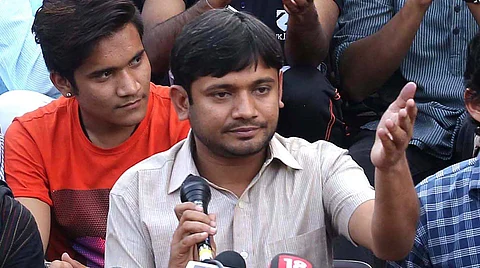

A Delhi court on Monday granted the Delhi government time till July 23 to decide whether to grant sanctions to prosecute former JNU Students' Union president Kanhaiya Kumar and others in the 2016 JNU sedition case. Chief Metropolitan Magistrate Deepak Sherawat granted specific time to the Delhi government which had earlier told the court that it will take over a month to decide whether to grant the sanctions to prosecute Kumar and others in the case.
A few days ago, the Delhi government informed a Patiala House court that the police had filed the chargesheet in the JNU sedition case in a 'hasty' and secretive way. There was also an ongoing blame game between the AAP government and the police. While the former said that the chargesheet was filed without required sanction, the latter refuted the claim saying that they'd sent a request to the government seeking sanction and that sanction was an administrative action, without which the chargesheet can be filed.
We sought a legal expert's help to find out the procedures while filing a sedition case. Lawyer and Political Commentator Sanjay Pinto says that, according to the chargesheet which was filed in January 2019, approximately three years after the said incident, ex-JNUSU President Kanhaiya Kumar, Umar Khalid, Anirban Bhattacharya and others were slapped with Section 124 A (Sedition), which falls under part VI of the IPC as Offences against the State. The prosecution on this case, however, falls under Section 196 of the CrPC.
"Proceedings, in this case, are determined by the CrPC section 196. It says that offenses under part 6 of the IPC and for offenses such as 153 A and 295 A, government sanctions are required for prosecution. It doesn't specify sedition specifically, but since it falls underpart VI, 196 applies to it," says Pinto. "Now, the problem arises because, Delhi is a Union Territory and there is a Lieutenant Governor, who can take administrative decisions. Also, the political views of the centre and the ruling AAP are different," he adds.
The Delhi police filed the chargesheet against the JNU students on January 14. But four months down the line, the accused are yet to see the chargesheet. On a previous conversation with us, Umar Khalid, who was slapped with sedition said, "The Delhi police is aware of all the procedures while filing a charge sheet. This is nothing but an attempt to prolong the entire process so that it continues till the elections."
